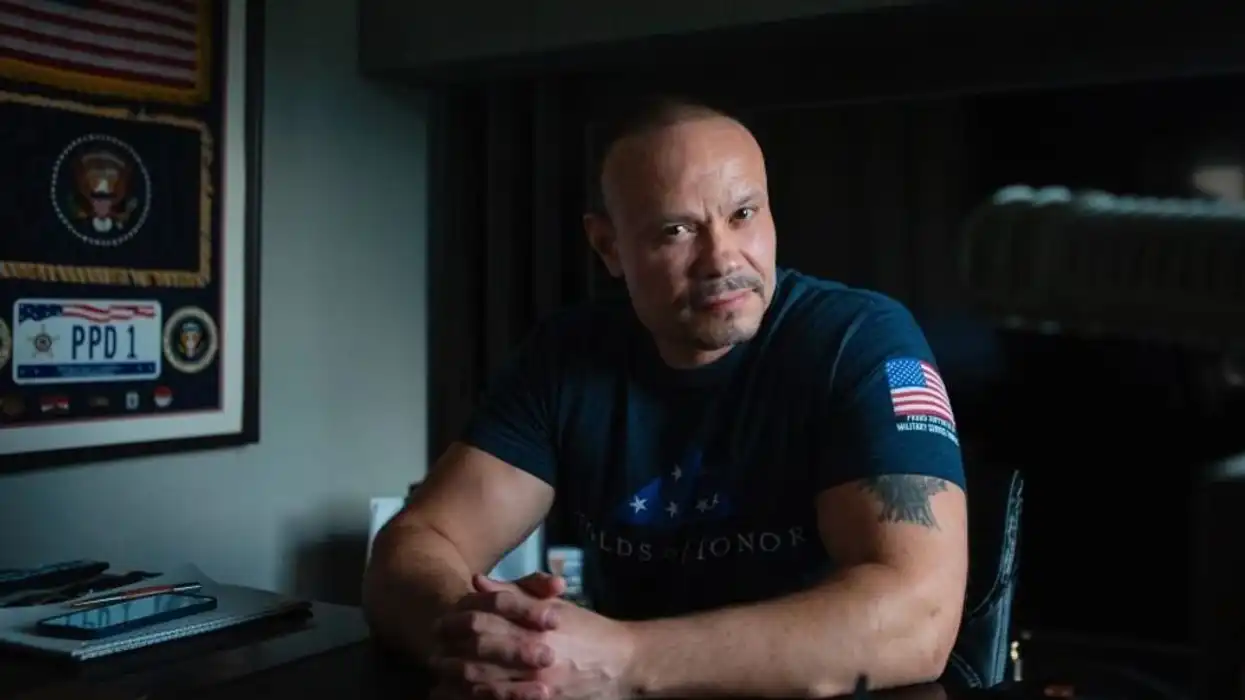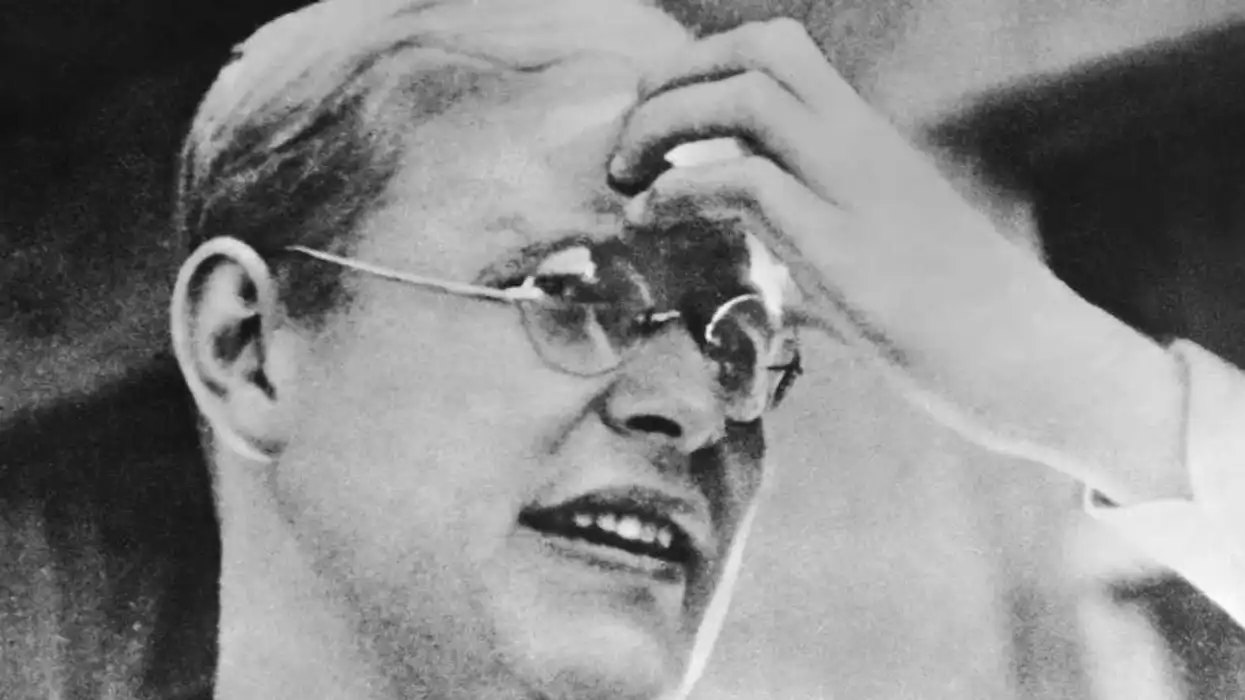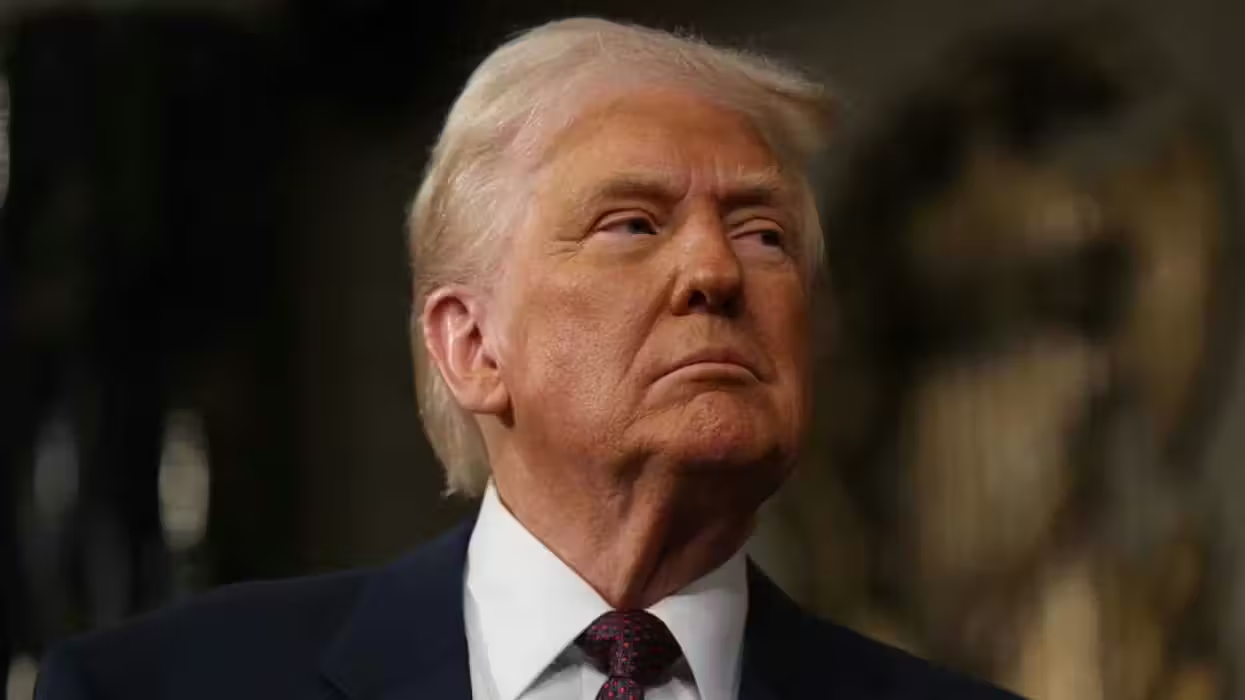
© 2026 Blaze Media LLC. All rights reserved.
Why Brittany Maynard Should Inspire Us to Oppose Euthanasia in All Cases
November 05, 2014
When I started blogging a while back, I wouldn't have guessed that I'd ever have to write about suicide three times in four months, but here we are.
These are dark times. Darker still for Brittany Maynard's family, as the 29-year-old euthanasia advocate reportedly went through with her very public plan to kill herself a few days ago.
We're told that Maynard's last moments on Earth consisted of her sitting in bed surrounded by her husband, her family, and her 'doctor.' She posted a suicide note to Facebook before ingesting a lethal dose of whatever drug this 'doctor' gave her. I don't know for sure what she took but it would have been some kind of barbiturate, like pentobarbital -- the same concoction your veterinarian uses to put your pets to sleep and prisons have used to execute criminals. Interestingly, many argue that these lethal injections are inhumane .
Inhumane for rabid rottweilers and convicted child murderers but not for cancer patients, apparently.
I've said plenty about our perverse culture and the death cultists who trumpet suicide, abortion, and euthanasia as victories for human rights and personal sovereignty. The human is liberated through destruction, the self declares itself sovereign by obliterating itself -- this is logic not only existing out on the fringes of progressive lunacy, but in the hearts and minds millions of seemingly ordinary Americans.
I've addressed at length the admiration so many seem to have for the act of self-murder. It's a dangerous and disturbing trend, and one that deserves more attention.
But I'm not going to have that discussion right now. Again.
Instead, I'd like to talk about the particular form of suicide -- the 'doctor assisted' variety -- that Mrs. Maynard opted for. The group Compassion and Choices took advantage of her condition and made her into a mascot for euthanasia. In vile and conniving fashion, the organization successfully exploited a sick woman's tragic story in order to 'change the face of assisted suicide.'
I don't have any poll data in front of me, but anecdotally it appears that their tactic paid off. Certainly if social media is any indication, millions of people are now perplexed as to why physicians are only allowed to kill cancer patients in a measly five states.
I'd like to address that question head on. I can't let progressivism win another crucial cultural victory through manipulation and emotional blackmail. So I don't know what good it will do, but I'm going to try to explain, from my perspective, why euthanasia should not only remain illegal in the other 45, but be prohibited everywhere, forever and always:
1. Because even euthanasia advocates are repulsed by euthanasia.
As with every other issue, liberals tend to drown this one in a sea of euphemisms. They won't speak directly about it, opting instead for code words and vague hints.
Truly, their capacity to deny the reality of their own beliefs knows no bounds. Take this blog post, for instance, which advances the curious idea that, somehow, Brittany Maynard didn't actually kill herself at all -- cancer did.
It's terribly troubling to think that an actual adult would write something so profoundly and morbidly ridiculous. Cancer killed her? How so? The facts are pretty clear here, I'm afraid. She deliberately overdosed on a lethal drug and then she died. Cancer likely would have killed her at some juncture in the possibly near future, but it didn't. She did. That's not up for interpretation or debate or differing views. It's just a fact; ugly to behold, but plain as day.
You could shoot yourself in the head as the airplane you're in goes hurtling towards the Earth and it still wouldn't be at all accurate to say that you 'died in a plane crash.' No, you died in a plane from a self-inflicted gunshot would, and then it crashed. The distinction is essential and, I would think, quite obvious.
Other attempts at obfuscation aren't as blatant, but are just as nonsensical and dishonest. According to its supporters, euthanasia isn't suicide, it's 'death with dignity' or 'exercising your right to die' or 'aid in dying.'
In fact, even the word 'euthanasia' literally means 'good death' or 'easy death.'
All of these clever terms and phrases are meant to distract from the terrible crux of the matter: euthanasia is suicide, and suicide is the murder of the self.
These other buzzwords don't even come close to describing what actually happens during an 'assisted suicide,' which goes to show that few people support what physically happens during an assisted suicide.
Right to die? What in God's name could that possibly mean? Death is not a right any more than you can say a stone has a right to fall to the ground after you toss it in the air. These are laws of science, unavoidable and inevitable. Death is not something that is exercised, like free speech or free assembly, it's just something that happens to us whether we like or not.
Rights are meant to protect the living from tyranny, not to protect the living from life.
Aid in dying? Sure, euthanasia can be called 'aid in dying' just as long as all forms of murder are also granted that comfortable label. We are, every one of us, inching closer to death, however near or far that date may be. In that sense I suppose any murder could be classified as a rapid perpetuation of a process that's been underway since conception.
Or we can stick with the old way of looking at it: if someone does something to immediately and deliberately cause your death, they have killed you. They haven't 'aided' anything, they've just killed you. And if you do it to yourself, then you have killed yourself. Period. End of sentence.
Death with dignity? There isn't anything dignified about being put down like an old dog. Dress it up in all the poetic rhetoric you like, but this is suicide and there is no dignity in it.
2. Because euthanasia is not just a personal choice.
It's a strange country we live in these days. Choices aren't justified based on their merits anymore, but merely on the fact that they are choices.
"It was a CHOICE!" the liberal screeches in an attempt to rationalize something that cannot be otherwise reasonably rationalized.
Yes, maybe it was a choice, but so what? Are we really ready to say that choices are fine just so long as they are choices? You're of course aware that such a premise could be used to defend approximately seven billion things that no civilized person would ever want to be caught defending.
And, in any case, euthanasia (just like abortion, not so incidentally) is not solely a personal choice. Yes, the individual chooses to seek out the 'treatment,' but this choice would not be possible without a doctor choosing to prescribe the poison that a company chose to manufacture.
Laws against euthanasia do not bar a person from committing suicide; they bar the medical establishment from participating. Even if I accepted (which I do not) that we have the 'right' to kill ourselves, this sacred entitlement has not been infringed upon.
The real question is whether a doctor has the right to kill his patients -- and on that point, as a patient who very much wishes to have his doctors always oriented towards preserving and extending his life, I feel comfortable offering a loud and hearty 'NO.'
Assisted suicide is, by definition, more than a personal choice. It requires the active involvement of other parties. I'd like to hear one person explain how and why we have a 'right' to kill ourselves with the participation of other people.
Where does this right come from? On which constitutional or philosophical tenet does it rest? The right to die at the hands of someone else -- this is an utterly indefensible notion, which explains why nobody ever tries to defend it outright.
Finally, we have to consider the confusing element that many of the people who celebrate euthanasia because it's a choice also justify suicide because, in their minds, it isn't. This makes no sense, of course, and I don't know how to analyze the dynamic other than to say that lots of folks are extraordinarily confused.
I can tell you that I wrote a post a few months ago calling suicide a choice and I was treated to the internet version of a town square stoning because of it. Yet a good number of these same lynch-mobbers will descend upon anyone who criticizes assisted suicide because 'who are you to question someone's choice?'
Can you make sense of that?
If so, maybe you can fill me in.
3. Because it violates the Hippocratic Oath.
The oath that doctors take isn't enforceable by law, but it outlines the core values that anyone in the medical field should abide by. The first and most basic: cure, heal, and treat the sick and suffering.
This is the whole point of medicine going all the way back to the ancient Greeks. When we accept assisted suicide, we chip away the very foundation of the medical field.
The obvious retort is that euthanasia can, in some cases, count as 'treating' the sick. But this is to expand the definition of 'treatment' so as to also include things that are the opposite of treatment.
When a patient is treated, she is offered relief and healing. She -- the individual person -- is relieved or healed. She cannot be relieved or healed if she is ended. The treatment of a person necessitates, among other things, that the person remain in existence.
Euthanasia is death instead of treatment, not death as treatment.
And as euthanasia laws eat away at the foundational principles of medicine, doctors begin to encounter a deeply problematic conflict of interest. How can they simultaneously work to fight these diseases while also helping their patients die rather than fight the diseases?
Time, energy, and financial resources are increasingly diverted from battling terminal illnesses to putting the terminally ill out of their misery. It's difficult to see how both avenues can be given the same attention by the same medical establishment, as they stand at odds with one another.
4. Because this is a slippery slope.
Not every slippery slope argument is a fallacy. Sometimes it's just a matter of observing the direct consequences of a course of action. In this case, we don't even need to extrapolate or conjure up wild prophecies of what might happen if our country decides to embrace euthanasia anymore than it already has.
All you need to do is look overseas, where human beings, including children, can be euthanized involuntarily. Here's one particularly horrifying case. If you want to be spared all of the gory details, I'll give you the quick summary: a mother in the UK just won the right to kill her disabled daughter.
The child is not terminally ill but her life, by her mother's estimation, is no longer worth living. Therefore the girl will be starved to death, which is, needless to say, an excruciating and miserable way to die. It would be illegal to kill your livestock in such a manner, but children are not protected as stridently as farm animals.
This is a logical and reasonable extension of the euthanasia argument. A doctor can only assist in a patient's suicide if certain parameters are met. Those parameters may differ by state or country, yet they all boil down to one thing: it must be agreed that the patient's life is not worth living.
Once we've made this calculation, and codified it into law, and described what sort of conditions make someone a candidate for voluntary execution, it isn't much of a leap to start applying these parameters to people who haven't specifically consented to it.
The assumption by all euthanasia proponents is not just that people should be allowed to kill themselves, but that they shouldn't be 'forced' to live through extremely difficult circumstances.
In the aftermath of the Brittany Maynard story, I'm sure you've seen a fair bit of this kind of thing on Twitter and Facebook:
@MattWalshBlog when our pets are suffering, we have the decency to put them down. When people suffer, we prolong their pain and agony
— Troy Freeman (@troylf) November 3, 2014'Putting down' human beings is 'decent,' you see. It's compassionate. Who are we to 'prolong' a person's suffering by forcing them to continue on existing?
If these principles can justify voluntary euthanasia, then it's only a matter of time before they justify involuntary euthanasia, just as they already have in other parts of the world.
5. Because human life is valuable.
I find myself making this statement in my writing at least once a week. Everything always comes back to this key point. Every position that I have on every issue -- it's all grounded in this belief.
Life is valuable.
Even through suffering, through sickness, through pain, through disease and disability. You might even say especially through sickness, pain, disease and disability. It is a grave injustice and a horrendous crime to rob a person of whatever time they have left on this planet, and it doesn't matter how much time that happens to be.
We must all believe that, because if we didn't believe it then we'd start handing out lesser sentences to those who murder the elderly, the disabled, or the terminally ill. Indeed, if we're to look at this from a practical perspective, the thug who kills an 89-year-old woman probably only sped up the dying process by a few months or a few years. Why should he be judged as harshly as someone who kills, say, me?
Maybe because we don't judge the worthiness or value of a human being based on how long they've been around, or how much pain they're in, or how sad and sick they feel.
At least, we shouldn't judge it that way. The moment we begin to make those calculations, we forfeit any semblance of justice, compassion, and humanity.
And now I'm afraid that I bit off more than I could chew at the beginning of this missive. I wanted to give you reasons why euthanasia should be illegal, but the truth is that there are a thousand reasons and I'm not confident that I even chose the best ones to highlight.
There are other points that I can't extrapolate on without stretching this into a 10,000 word tirade that might test the patience of even my most tolerant readers.
So, in closing, I'll just leave this here.
And this.
And this.
After all is said and done, these are the best arguments I can think of. And they aren't arguments at all.
Want to leave a tip?
We answer to you. Help keep our content free of advertisers and big tech censorship by leaving a tip today.
Want to join the conversation?
Already a subscriber?
more stories
Sign up for the Blaze newsletter
By signing up, you agree to our Privacy Policy and Terms of Use, and agree to receive content that may sometimes include advertisements. You may opt out at any time.
Related Content
© 2026 Blaze Media LLC. All rights reserved.
Get the stories that matter most delivered directly to your inbox.
By signing up, you agree to our Privacy Policy and Terms of Use, and agree to receive content that may sometimes include advertisements. You may opt out at any time.






